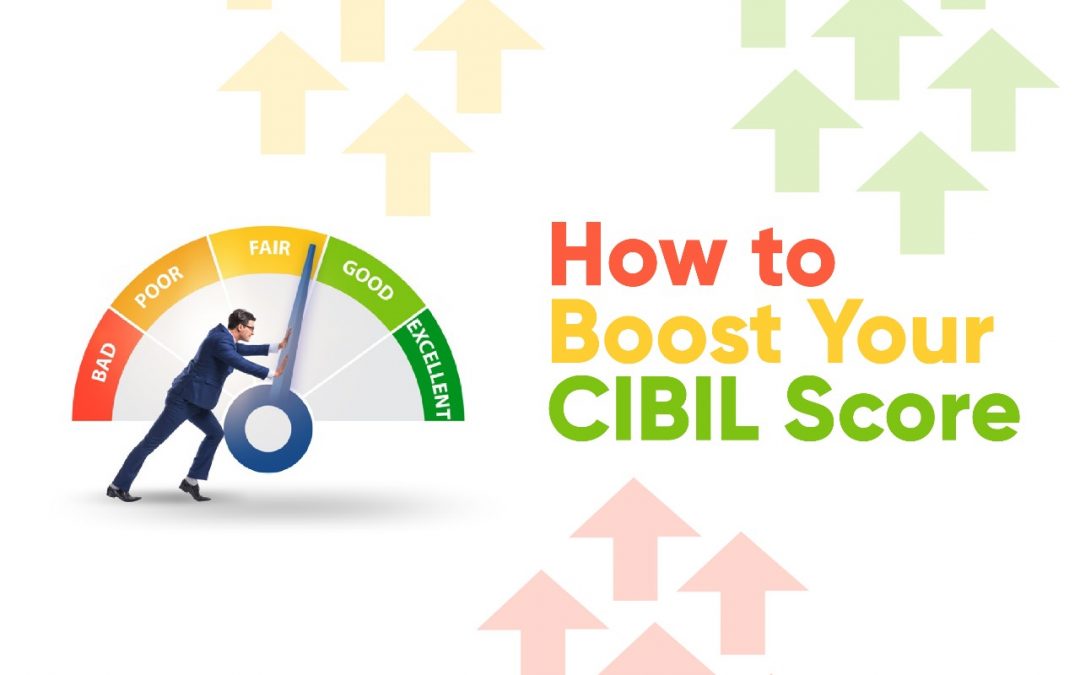Your CIBIL score is essential for maintaining good financial health. It affects your ability to get loans, credit cards, and even rent a house. A higher score means better chances of getting credit with favourable terms. Here’s how you can improve your CIBIL score with practical and effective steps.
Understand Your CIBIL Score
First, know what a CIBIL score is. It’s a three-digit number ranging from 300 to 900, showing your creditworthiness. A score above 750 is considered good, while below 600 is poor. Your score depends on your credit history. This includes loan repayments, credit card usage, and other financial activities.
Check Your Credit Report Regularly
Get your credit report from CIBIL at least once a year. Check for errors like incorrect loan amounts, false late payments, etc.
If you find any mistakes, report them to CIBIL for correction. Errors can harm your score, so ensure your report is accurate.
Pay Your Bills on Time
Late payments are a major reason for a low CIBIL score. Pay your credit card bills, loan EMIs, and utility bills on time. Set reminders or use auto-pay features to avoid missing due dates. Timely payments show that you are a responsible borrower, improving your score.
Reduce Your Credit Card Balance
High credit card balances can lower your score. Try to maintain your credit utilization rate under 30%. This means if you have a credit limit of ₹1 Lakh, try not to use more than ₹30,000. Paying off your balances completely every month is even more beneficial. This shows you can manage your credit well.
Avoid Multiple Loan Applications
Each time you apply for a loan or credit card, lenders check your credit report. Submitting too many applications in a short span of time can negatively impact your score. It shows you are desperate for credit, which is a red flag for lenders. Space out your credit applications to avoid this.
Keep Old Credit Accounts Open
Older credit accounts with a good payment history help boost your score. Closing old accounts shortens your credit history and can lower your score. Even if you don’t use the account much, keeping it open benefits your score.
Diversify Your Credit Mix
If you have a healthy mix of credit types like home loans, credit cards, and so on, it can positively affect your score. It shows your ability to handle various types of credit. But only take loans you need and can repay comfortably.
Negotiate with Lenders
If you’re struggling to repay your loans, talk to your lenders. They might offer a revised repayment plan or settlement option. Ensure you get a no-dues certificate once you clear your dues. This helps prevent negative marks on your credit report.
Co-own a Credit Card
If you co-own a credit card with a family member who has a good credit history, it can boost your score. Make sure the main cardholder practices sound credit habits. Their actions will impact your score.
Limit Hard Inquiries
Hard inquiries occur when lenders check your credit report for loan approval. Each credit check may cause a minor decrease in your score. Soft inquiries, like checking your own credit report, do not affect your score. Limit hard inquiries by avoiding unnecessary credit applications.
Use a Personal Loan to Pay off Credit Card Debt
If you have high credit card debt, consider a personal loan to pay it off. Personal loans usually come with lower interest rates compared to credit cards. This helps you save on interest. It can also help improve your credit utilisation ratio, boosting your score.
Monitor Your Joint Accounts
If you co-sign or guarantee a loan, ensure the primary borrower makes timely payments. Any default on these accounts affects your credit score. Regularly check the status of these accounts to avoid surprises.
Build a Good Credit History Early
Start building your credit history as soon as you start earning. Request a credit card or apply for a small personal loan. Use it responsibly and pay on time. A long, positive credit history significantly boosts your CIBIL score over time.
Avoid Settling Your Loans
Settling a loan for less than the owed amount can harm your score. Lenders report settlements to CIBIL, which marks it as negative. Try to pay your loans in full to avoid this.
Use Credit Cards Wisely
Using credit cards responsibly can help boost your score. Don’t max out your cards. Keep your spending within limits and pay off the balance each month. Avoid withdrawing cash using your credit card, as it attracts high interest and fees.
Monitor Your Credit Utilization Ratio Closely
Your credit utilisation ratio is the amount of credit you use from the available limit. Keeping this ratio low shows you are not overly reliant on credit. Aim to keep it below 30% for a positive impact on your score.
Increase Your Credit Limit
Ask your credit card issuer to raise your credit limit. A higher limit can help lower your credit utilisation ratio. But, this is effective only if your spending remains the same. This can positively affect your score. However, don’t use the extra credit unless necessary.
Pay More Than the Minimum Due
Paying only the minimum amount due on your credit card keeps you in debt longer and costs you more in interest. Aim to pay more than the minimum due, ideally the full balance, each month. This helps reduce your debt faster and improves your score.
Consider Opting for a CIBIL Repair Agency
If you are struggling to improve your CIBIL score on your own, consider using a CIBIL score repair agency. These agencies specialise in helping individuals enhance their credit scores. They help identify errors in credit reports, negotiate with lenders, and effectively manage your debt.
Improving your CIBIL score is not an overnight process. It requires consistent effort and financial discipline. Stay patient and follow these steps diligently. Over time, you will see a positive change in your score. You can get started by simply checking your CIBIL score on Bajaj Markets for free. This will help you get an idea of your credit status. You can then use this information to take proactive steps and improve your CIBIL score.













